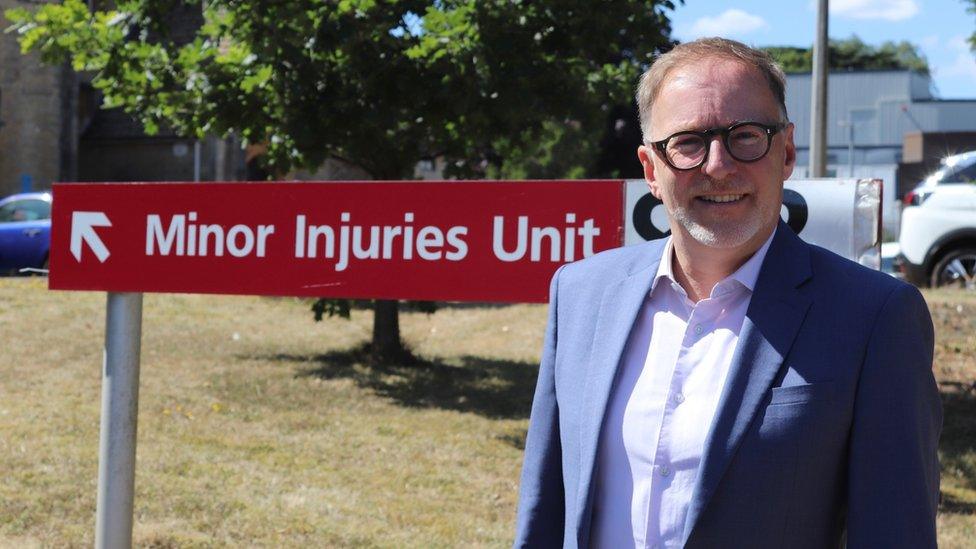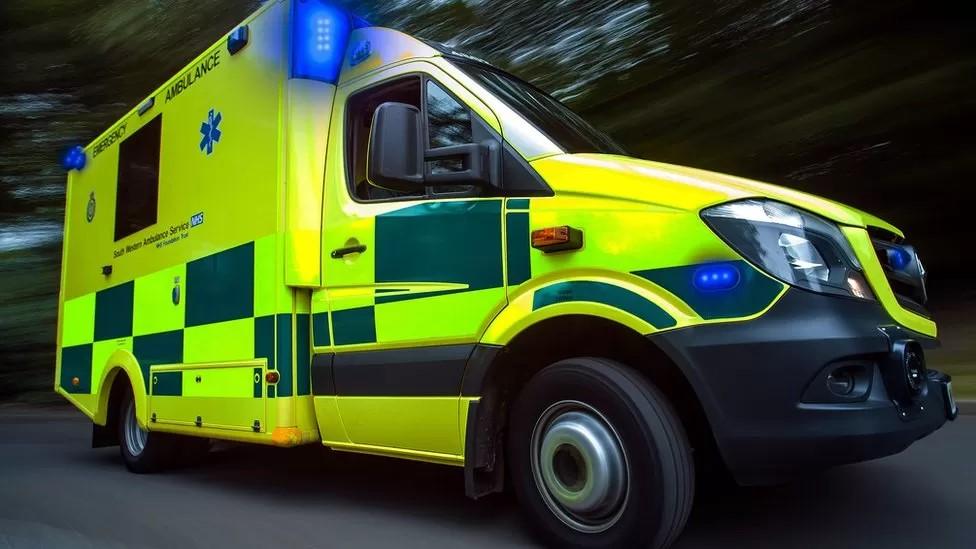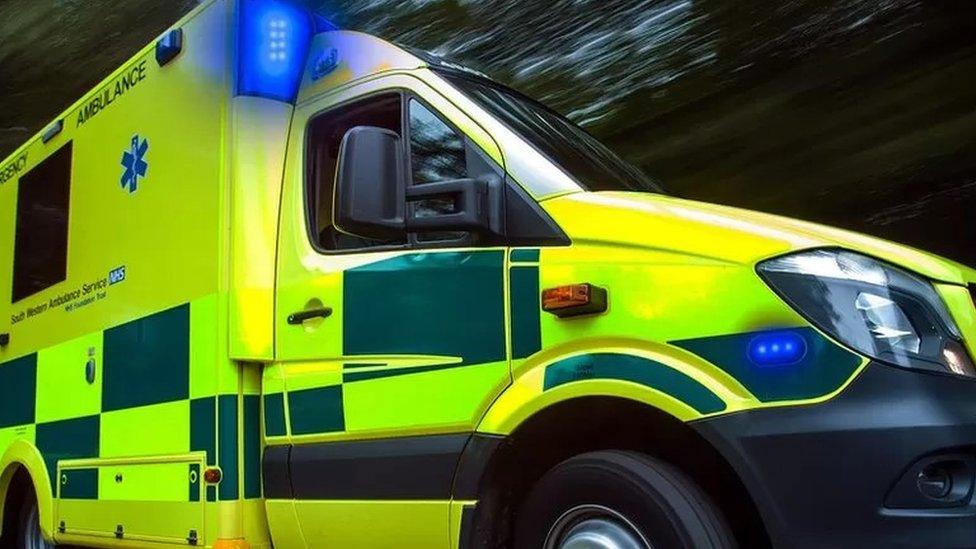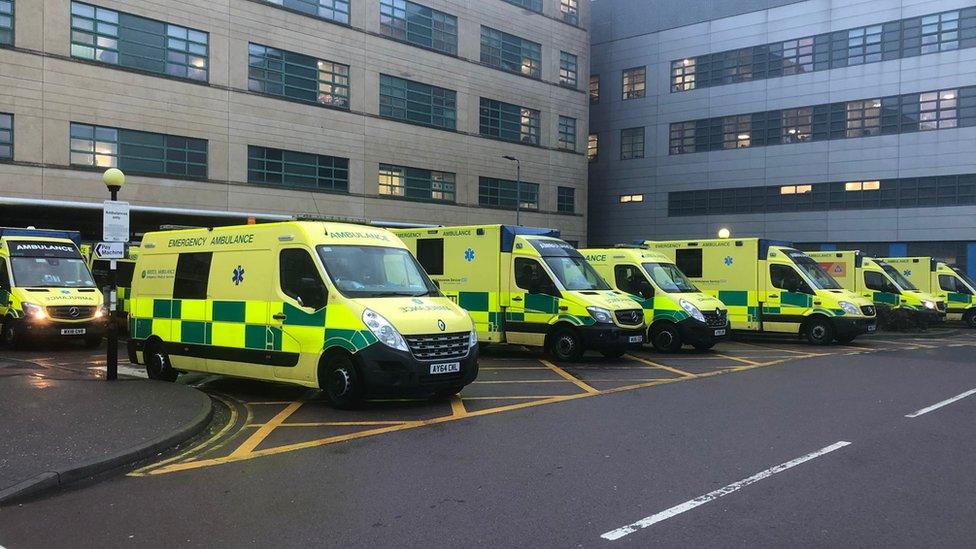Cotswolds residents concerned over ambulance response times
- Published

Paul Hodgkinson represents Bourton-on-the-Water and Northleach on Gloucestershire County Council
People in rural areas are worried about slow ambulance response times, a councillor has said.
Paul Hodgkinson told county health bosses that he was "really disappointed" to see targets missed so badly in the Cotswolds.
The meeting heard that response times are now almost twice as long in the Cotswolds compared to Gloucester.
NHS Gloucestershire's Mary Hutton said they are planning to make more ambulances available.
The Forest of Dean and Cotswolds lag behind Cheltenham and Gloucester in response times due to the location of the county's two major hospitals.
However, there are growing concerns that response times are getting worse as winter arrives.
It now takes 14.1 minutes to reach someone suffering from a life-threatening condition, such as a cardiac arrest, in the Cotswolds, while it is 7.8 minutes in Gloucester.
The target time for such incidents is seven minutes, according to the Local Democracy Reporting Service.
The time it takes to respond to a serious condition, such as stroke or chest pain, has also worsened to 70.9 minutes from 46.7 minutes in September - the average response for these incidents is 18 minutes.

People in rural parts of Gloucestershire are concerned about ambulance response times
Councillor Hodgkinson told the county council's health overview and scrutiny committee: "Speaking to residents, and I feel the same myself as someone who lives in a rural area, it is a worry.
"Is the ambulance going to turn up? What would happen if I felt seriously ill.
"My worry is as the winter progresses, it will get worse rather than better."
Ms Hutton, NHS Gloucestershire Integrated Care Board chief executive, said the situation is a challenge but they are working on improving response times.
"If we can manage more of that work in the community, we can then release more ambulances to respond to category one targets," she said.
South Western Ambulance Service NHS Foundation Trust (SWASFT) said it was "sorry that we were unable to provide a timely response to some patients".
Since 2020, SWASFT has increased the number of hours ambulances are on the road from 37,000 to over 50,000 hours per week, a spokesperson added.

Follow BBC West on Facebook, external, X, external and Instagram, external. Send your story ideas to: bristol@bbc.co.uk, external
- Published24 May 2023

- Published28 December 2022
